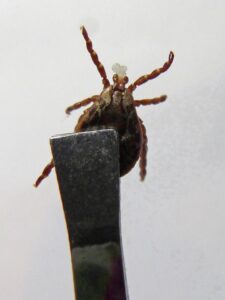Heartworms are parasitic worms that are common in pets, especially dogs. These parasites are introduced into the body of a dog through a mosquito bite in their larval stage. It takes around six months for the larvae to grow to become adult heartworms. Since they can go undetected for months, it is very important to take your dog or puppy for regular checkups and heartworm testing. This is particularly vital for pet owners living in areas that are prone to mosquitos.
How Heartworms Affect Your Dog’s Body
For infection to take place, an infected mosquito bites a healthy dog, transmitting microfilariae. At this stage, the parasites have very little impact on the health of your dog. The microfilariae grow to become larvae before transforming into adult heartworms. Once inside the body of your pet, these silent killers do not stop there. Females mate with the males to produce offspring. These worms then find their way up to your pet’s heart and lungs.
Adult heartworm is between 6 to 12 inches long. When they accumulate in large numbers, they obstruct the regular flow of blood and can cause severe damage to the pulmonary arteries.
If the numbers continue to multiply, heartworms can completely block the flow of blood, causing shock and collapse. At this stage, the affected dog dies after a couple of hours. They pose another threat. Although rare, heartworms have been known to cause some sort of allergic reaction to dogs.
Signs Of Heartworms
Early signs you can look out for that may suggest your dog has heartworms include:
- Shortness of breath
- Dry cough
- Loss of stamina
- Loss of appetite
- Loss of weight
- In severe cases, you may notice the bulging of the chest or swollen abdomen.
How To Prevent Your Dog From Getting Heartworms
Before taking your dog for preventative treatment, ensure you take him for heartworm testing first. A blood test is normally done to check for heartworms. If he is not infected, you can have your vet introduce your dog to preventative medication that will provide him 12-month protection against parasites and intestinal worms. You can start as early as six months to give your puppy prevention medication against heartworms.
Dogs cannot get heartworms from getting in contact with infected dogs. Transmission of parasites is done through a mosquito bite. As a preventive measure, ensure that you clear tall grass from your yard to stop mosquitos from breeding. Also, ensure that you drain all stagnant water in your yard to prevent mosquitos from hatching their eggs. Remember, prevention is the best medicine.
Treatment
Treatment of heartworm disease is not without its risks. If the case is severe, the treatment can be a costly affair to the pet’s owner. The process itself can be difficult for the dog and maybe hard for him to bear. However, this does not mean heartworms cannot be treated. For treatment, a veterinary will administer medication that will kill all adult heartworms. The body absorbs the dead heartworms to get rid of them from the system.
More medication is dispensed to eliminate larvae and microfilariae that are left in the blood system. A professional vet will ensure that the dog is free from all internal parasites and infection before beginning the preventive treatment.
To know more about signs that your dog may have heartworms, visit Country Veterinary Clinic at our office in Live Oak, California. You can also call (530) 491-4500 to book an appointment today.



